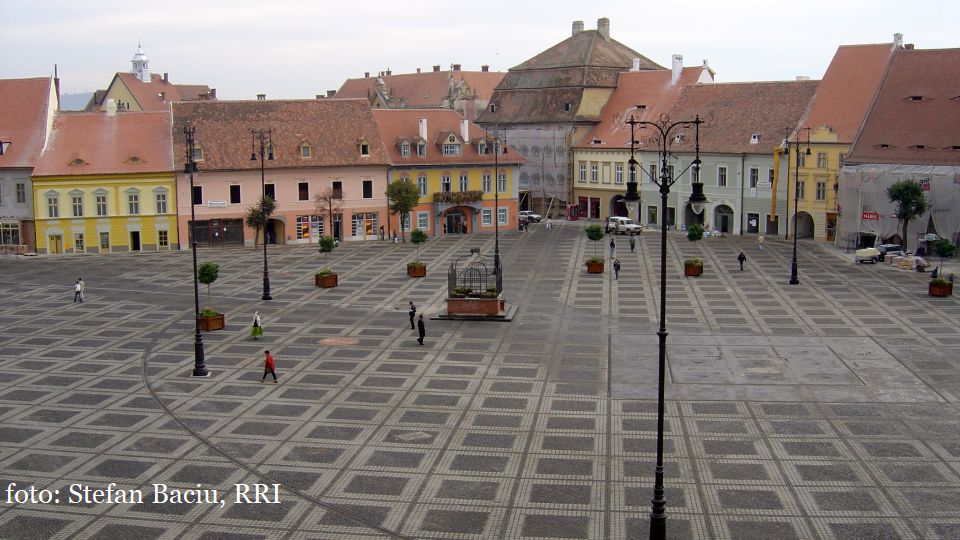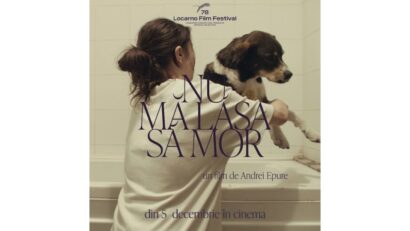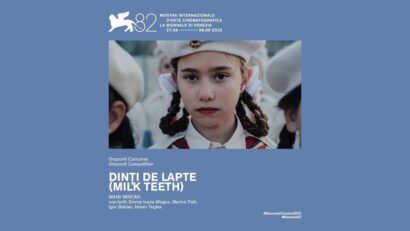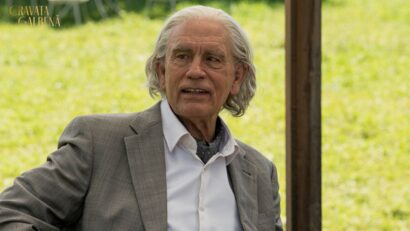Astra Film Festival in Sibiu
The Death of Iosif Zagor, the debut documentary directed by Adi Dohotaru

Ana-Maria Cononovici, 12.07.2025, 13:08
Winner of the Mention Award at the Astra Film Festival in Sibiu and screened at the opening of the One World Romania Festival, The Death of Iosif Zagor, the debut documentary directed by Adi Dohotaru, is one of the most moving Romanian films of the past year. The film tells the story of videographer Iosif Zagor who documents the last four years of his life, his loneliness and illness, talking about his fears of being forcibly evicted from three different locations, where he lived in precarious conditions in his old age. Iosif Zagor used his old camera to videotape his life and that of others in social housing. The main theme of the documentary, housing, is viewed through the lens of vulnerability, presenting the problematic context in which access to housing for vulnerable or marginalized people is becoming increasingly difficult. At the same time, the film also talks about the eviction processes of these people and the abusive ways in which they take place. The film aims to give voice to the main protagonist, Iosif Zagor, and to create a context of self-representation, advocating for giving space to vulnerable people to tell their own story and become visible. Adi Dohotaru:
“In 2017, some friends from civil society presented to me the situation of people at risk of eviction. There were approximately 50 people in this situation. That’s when I met Iosif Zagor and his neighbors. Iosif had an old, dusty camera, a camera that still used cassettes, and that he hadn’t used for a long time. I asked him to film his situation, but also that of his neighbors, so that we could make their problem known to both the authorities and the public. But we didn’t manage to avoid the eviction then. However, we postponed it for a while, at least those people weren’t evicted in the winter. As the documentary shows, we kept in touch with Iosif Zagor and some of his neighbors, and over time the relationship between us strengthened. Watching the tapes he recorded and talking about his problems and those of other people in his situation, we even became friends. And so we thought over time to make a film that would give a voice to such vulnerable people.”
Adi Dohotaru, who makes his debut with this documentary, is a practitioner of the Participatory Action methodology and in his projects he resorts to the technique of Performative Anthropology to highlight his collaborators. He composes laws and poems, does civic and environmental research.
“I directed ‘The Death of Iosif Zagor’ because I failed. As an activist, as a researcher or as a politician, I proposed, together with other experts, activists and vulnerable people I met, public policies through which the authorities invest in social housing.
The EU average of social and affordable housing is just under 10%, but in Romania it is even lower: 1%”, said Adi Dohotaru, the film’s director:
“Indeed, in Romania the situation is much worse than the European average. A big problem is that after 1989, as we all know, the public housing stock was privatized. An alternative policy, to help these people, would have been to keep much more public housing. In this way, we would have given a chance to the vulnerable, the elderly, or women trying to get out of abusive marriages. Thus, more vulnerable categories would have been helped by such policies. Unfortunately, this did not happen. The public housing stock was privatized and no more were built, as happened in the West. And I would like to say that there has even been an international trend in recent decades in this regard, even in Western Europe the public housing stock has decreased. After all, why did the state withdraw from such public policies? We have a neoliberal state, which for the most part does not encourage social and environmental policies. That is why certain areas, such as housing, are regulated by the state. Whether and how these things can be changed is a long discussion. After all, the film showed what such people go through, where the state is effectively absent or very little present. And as I was saying, this situation is not unique to Romania, but is found at a general level. We live in a very competitive, very individualistic context, everyone is doing it alone, and then we lack the time necessary to be sensitive to the problems of others, being very burdened with our own problems. In this sense, we have enough work to do not only as individuals, but also as a society. And for things to change, we need social and political movements that raise different issues. And at the moment, such agendas interested in the standard of living of others, in housing, are few, especially at the level of mainstream parties. “
The documentary is directed by Adi Dohotaru, produced by Monica Lăzurean-Gorgan through the Filmways production company, in co-production with SOS – Sustainable Organized Society, co-producers Adi Dohotaru and Radu Gaciu. Editing is by Alexandru Popescu. The film benefits from the support of the Documentary Film Master’s Program of the Faculty of Theater and Film of the “Babeș-Bolyai” University in Cluj-Napoca.






























